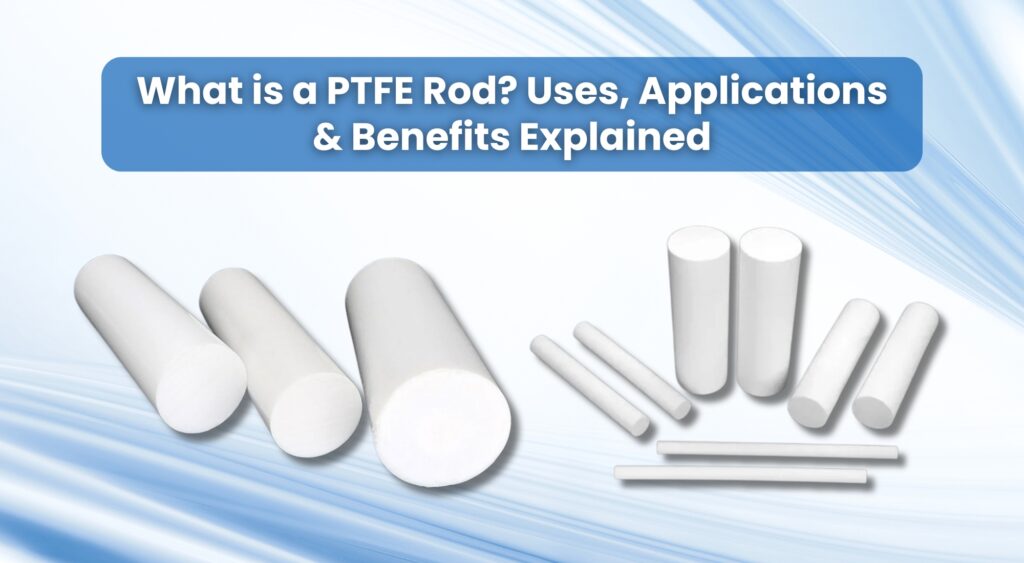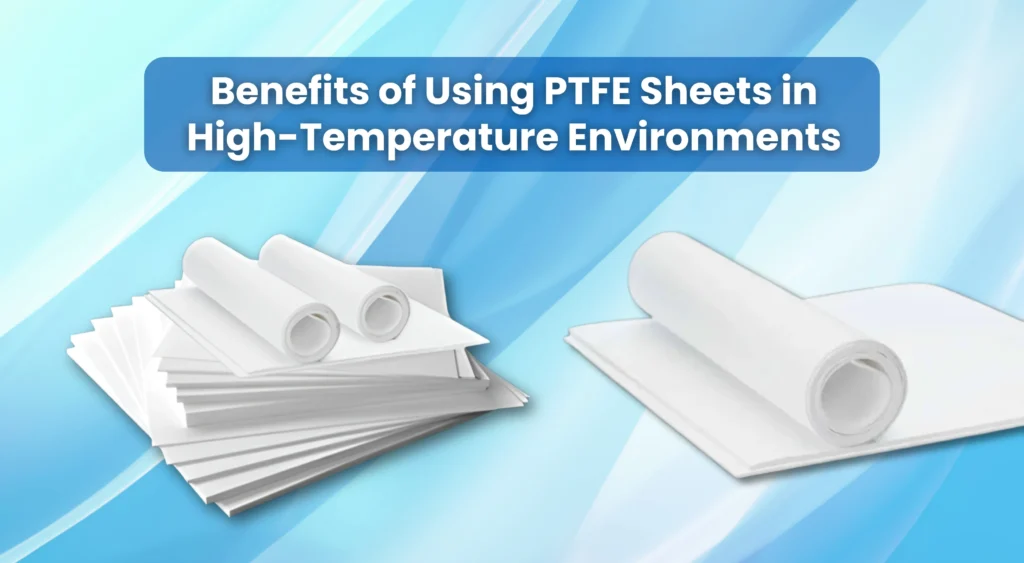When a machine or pipe holds gases or liquids, it needs gaskets. They stop leaks. One type of gasket that is widely respected is a PTFE gasket. This blog will cover the basics of PTFE gaskets. We’ll discuss the different types, their uses, and why many industries trust them. PTFE gaskets are strong and last a long time. They also seal well in tough conditions. Companies rely on them for seals in many places: factories, food processing, and chemical plants.
What is a PTFE gasket?
PTFE gasket is a particularly adjustable sealing ring made from polytetrafluoroethylene (PTFE). Cottage Talk uses Teflon to identify PTFE. It is a white, slippery material that mildly reacts with chemicals. So, it usually works in tough places like chemical plants or oil refineries. PTFE gaskets are set between two bodies, i.e., pipe connections or machine parts, to prevent leakage. They may seal gases, liquids, or even steam. Since PTFE is non-stick, it is an appropriate material choice where many fail.Types of PTFE Gaskets
There are various types of PTFE gaskets. Each is designed to handle a particular kind of work or pressure. Let’s check out the most common types:- Virgin PTFE Gasket: Virgin PTFE gaskets consist of 100% pure PTFE. They have no fillers added. These gaskets are soft and flexible. They resist nearly all chemicals very well. They usually work in low-pressure settings and with non-abrasive products.
- Filled PTFE Gasket: These gaskets materials boost strength and reduce deformation. This filling makes gaskets last longer. It helps them handle high pressure, temperature, and mechanical stress. They will also resist wear better than virgin PTFE.
- Expanded PTFE Gasket: Manufacturers make expanded PTFE gaskets by stretching PTFE while holding it back a bit. This gives the gasket a soft and spongy surface texture. It’s used in applications with low bolt loads that need a tight seal.
- Envelope PTFE Gasket: Envelope PTFE gaskets have cores made of rubber or fiber. They feature thin outer coatings of PTFE. The design features PTFE for its chemical resistance. It also has a strong core for added mechanical strength. They are usually secured in flanged joints in chemical-processing equipment.
- Skived PTFE Gasket: Manufacturers create skived PTFE gaskets by cutting thin sheets from blocks of raw PTFE. We know this process as skiving. These gaskets have a flat, smooth finish. They are also highly customizable in size and thickness. Many areas that need clean and precise sealing use them. This includes electronics and cleanroom systems.
Where are PTFE Gaskets Used? Common Applications
Many fields and industries use PTFE gaskets. Their qualities make them great for sealing systems that need strong, reliable gaskets. Common installations include:1. Chemical Processing
These gaskets are designed for chemical plants. They resist corrosive fluids and handle abrasive environments well.- In acid and chemical pipelines.
- Seals for reactors, tanks, and pumps.
- In the handling of high-purity chemicals.
- Inhibit leakage in storage systems.
2. Food and Beverage Industry
PTFE is nontoxic and safe for food contact. So, it’s the best sealant for hygienic food production.- Sealing pipelines and tanks for food.
- Applied to processing machinery and mixers.
- Inhibits bacterial growth because of its non-stick surface.
- Easy washability and sanitization.
3. Oil and Gas Industry
PTFE gaskets work great in tough conditions, so they fit well in the energy sector.- Sealing of high-pressure valves and flanges
- Offshore and onshore pipeline applications.
- Resisting corrosive chemicals in crude oil.
- Withstanding severe temperature and pressure variations.
4. Water Treatment Plants
PTFE gaskets ensure safe operation without leakage in water purification and wastewater systems.- Gaskets for filter housings and tanks
- Chemical-resistant seals for dosing systems
- Resistance to chlorinated water and cleaning agents
- Durable for continuous-flow systems
5. Electronics
PTFE gaskets protect sensitive electronic parts from dust and moisture. They also provide heat shielding.- Used in circuit board housing enclosures.
- Provides insulation and heat resistance.
- Prevents moisture from entering outdoor electronics.
- Supports reliable performance in sensitive devices.
Main Benefits of PTFE Gaskets
Let’s go into why many companies opt for PTFE gaskets over other sealing materials:- High Chemical Resistance: PTFE resists strong acids, alkalis, and solvents without breaking down. It is a good choice for chemical tanks and reactors.
- Temperature Tolerance: The equipment functions in both very hot and very cold temperatures. PTFE is effective with gaskets. Its temperature range is between minus 200°C and 260°C.
- Long-Lasting Performance: PTFE items exhibit slow wear and can endure for many years. Less downtime, free replacements.
- Food-safe and non-toxic: PTFE is food-safe and approved. You can use it in kitchens, food units, and beverage machines.
- Non-Stick and Easy to Clean: The non-stick surface makes cleanup easy and stops ingredients from sticking. This is very helpful in industries where treatment matters.
How to Choose the Right PTFE Gasket
Choosing the right PTFE gasket is crucial for safety and efficiency. Let us give you some help with the selection:- Chemical Compatibility: Ensure the gasket material is compatible with the chemicals it is sealing.
- Pressure levels: Selecting a style that can contain the system’s pressure is crucial.
- Surface Type: Use expanded PTFE for rough or uneven surfaces.
- Gasket Thickness: We choose higher thicknesses for uneven connections.
Conclusion
PTFE gaskets are among the safest sealing solutions used in almost every industry. Chemical-resistant gaskets by Hindustan Polymer that handle heat and resist sticking are perfect for key jobs. They are used in chemical plants, food factories, oil refineries, and water treatment systems—ensuring safe, long-lasting, and leak-proof service. All sorts of PTFE gaskets from Hindustan Polymer are available and can be custom-made to suit any application. With strength, flexibility, and safety addressed, a PTFE gasket from Hindustan Polymer is a smart choice. Industries can pick gaskets that help their operations run with efficiency, speed, and safety—once they understand their uses and benefits.Frequently Asked Questions
Can PTFE gaskets withstand hot and cold temperatures?
These gaskets demonstrate excellent resistance to both high and low temperature exposures.
Is the PTFE gasket configuration suitable for use with food?
The material maintains safety standards for contact with food products and thus finds extensive application in food and beverage operations.
Are PTFE gaskets long-lasting?
These gaskets maintain strong durability through challenging operational environments.
Can a PTFE gasket be used without restriction?
The PTFE gasket must be used under some guidelines and used with care.



